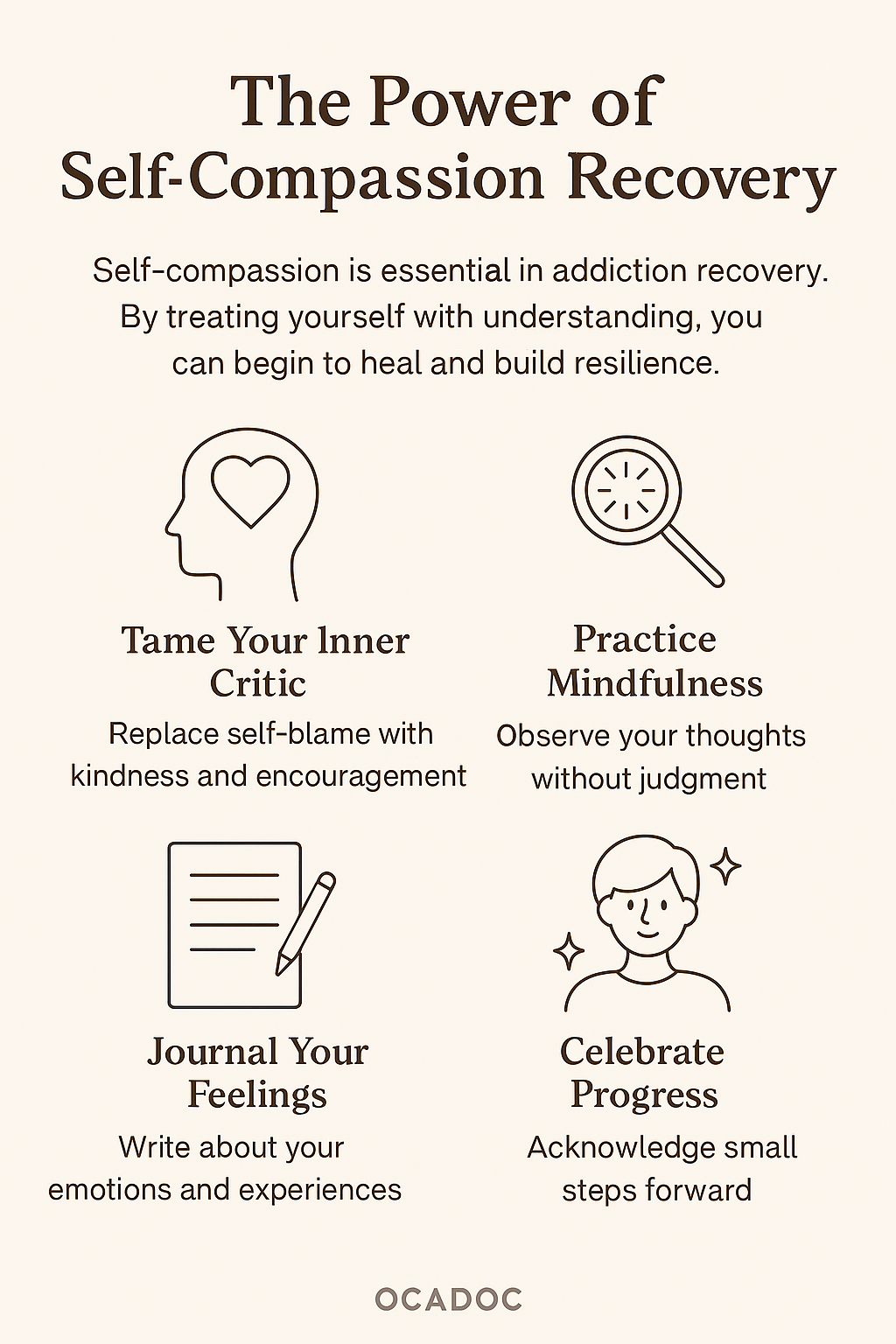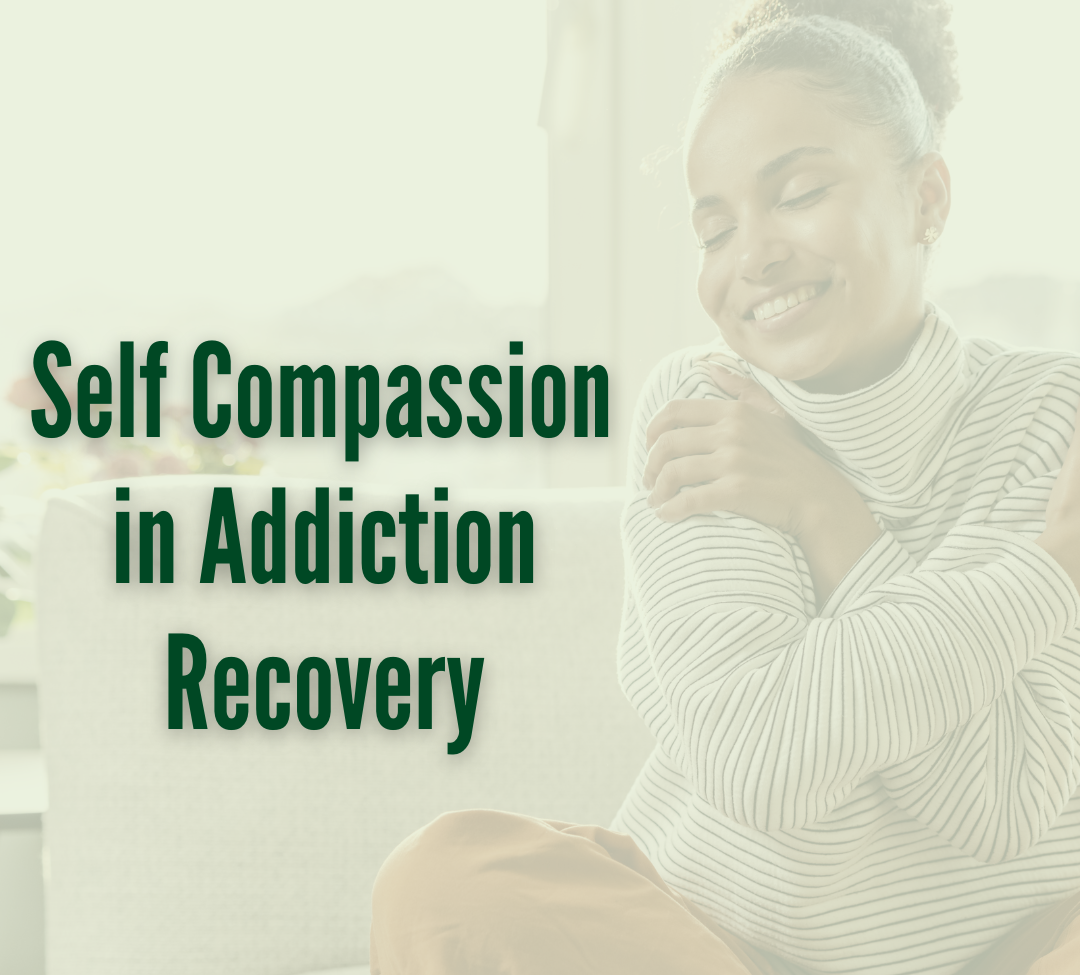Self-compassion often takes a back seat in most recovery programs, yet it can be one of the most transformative tools in healing. For many of us, the inner voice we carry is far harsher than we’d ever be to someone else. When you’re rebuilding after addiction, anxiety, depression, or any major life setback, that critical voice can make progress feel impossible. Learning to meet yourself with patience, forgiveness, and understanding isn’t about making excuses—it’s about creating the safety and trust you need to grow. I’ve learned that recovery isn’t just about removing harmful habits; it’s also about reshaping how you relate to yourself in moments of struggle. Self-compassion gives you the strength to face setbacks without shame and to keep moving forward with courage. In this piece, I’ll explore why self-kindness is such a powerful force in recovery and share simple ways to start practicing it—even if it feels uncomfortable or unfamiliar at first.
Why Self-Compassion Actually Matters in Recovery
Recovery isn’t always a straight path. Setbacks, self-doubt, and uncomfortable feelings can show up at almost every stage. That’s where self-compassion can make a real difference. Instead of sinking into shame or frustration when things don’t go perfectly, self-compassion means treating yourself with the same understanding you’d probably offer a good friend. Dr. Kristin Neff, one of the leading experts in this area, describes self-compassion as a combination of mindfulness, self-kindness, and a sense of shared humanity. Her research shows that self-compassion is linked to less anxiety, less depression, and even a greater understanding of personal responsibility.
I’ve noticed that when I treat myself harshly after a setback, my motivation drops and I feel pretty isolated. When I’m gentler and remind myself that it’s normal to mess up sometimes, it’s much easier to get back on track without spiraling. In recovery settings, from AA meetings to support groups, there’s often an underlying message of “one day at a time.” At the core, that’s a way of inviting self-compassion into the process.
Understanding Self-Compassion: The Basics
Before you can incorporate self-compassion into your recovery, it’s helpful to understand what it actually means. Some people worry that self-compassion is an excuse for slacking off, but that’s not how it works. It’s really about being honest with yourself and offering the same patience you’d show a loved one. Here are the three main components of self-compassion, based on Neff’s research:
- Mindfulness: Noticing when you’re struggling, instead of pushing your feelings away or exaggerating them.
- Selfkindness: Talking to yourself in a caring, nonjudgmental way, even when you don’t feel like you “deserve” it.
- Common humanity: Recognizing that you’re not alone in your pain; everyone has tough times.
Building these habits doesn’t come naturally for everyone, especially if you’re used to being harder on yourself. In my experience, it took a while for any of this stuff to feel natural, but the impact over time has been pretty obvious.
What Gets in the Way: Barriers to Self-Compassion
Building self-compassion in recovery sounds excellent, but there are some real obstacles. Here are a couple of the big ones I’ve run into (and heard from others):
- Negative self-talk: Years of internal criticism can make it tough to switch your perspective. Sometimes, the harsh voice in your head feels like “the real you.”
- Fear of being weak: There’s a worry that softening up on yourself means you’ll lose your edge, or that it’s just self-pity.
- Shame and guilt: Especially common in addiction recovery or after big mistakes. Shame can make it almost impossible to see yourself as worthy of kindness.
The thing is, none of these are permanent. Reminding yourself that being tough and being kind are not the same thing can help chip away at the resistance.
How Self-Compassion Actually Boosts Recovery
Practicing self-compassion isn’t about just feeling better in the short term. It actually changes how you approach setbacks, cravings, or rough days. Here’s how it plays out:
- Less shame, more motivation: When you respond to slipups with kindness, you’re more likely to bounce back rather than give up. According to studies on self-compassion, more self-compassionate individuals tend to handle failures and criticism more effectively.
- Reduced stress and anxiety: Recovery is stressful, and self-compassion has been shown to lower cortisol levels (the stress hormone). Lower stress can make you less likely to revert to old coping habits.
- Stronger relationships: When you’re less complicated with yourself, you usually judge others less, too. Recovery often involves rebuilding trust. Being kinder to yourself frequently improves how you relate to people around you.
- Willingness to seek help: People who have more self-compassion are typically less embarrassed to ask for support, which is super crucial while working through recovery.
Honestly, I’ve found that self-compassion doesn’t erase the hard stuff, but it does give you a bigger buffer. When things get messy, you can dust off and keep moving forward.
Practical Strategies to Develop Self-Compassion
Self-compassion isn’t just “thinking nice thoughts.” There are several small ways you can train your brain to treat yourself with more understanding. Here’s what’s worked for me and others I know:
- Notice your self-talk: Start bringing awareness to how you talk to yourself, especially when things go wrong. Instead of automatically blaming yourself, pause and ask, “Would I talk like this to a friend?”
- Write it out: Journaling about challenging moments, without censoring yourself, helps you get some distance and look for patterns. Sometimes it helps to write an encouraging letter to yourself, as though you were offering advice to someone else in the same situation.
- Meditation and grounding exercises: Guided self-compassion meditations can be really calming. There are many good ones available on apps like Insight Timer or Calm. Even just repeating a simple compassionate phrase can make a difference.
- Physical self-care: Sometimes self-compassion is about action, not just words. Eating well, getting enough rest, and spending time in comforting spaces can reinforce the message that you’re worth taking care of.
- Connect with others: Hearing someone else’s story or joining a support group reminds you that you aren’t the only one who struggles, even if your situation feels unique. Shared experience can be a powerful reset.
Trying all of these at once can be overwhelming, so focusing on just one or two usually works best. You might find one strategy fits better than others, and that’s totally normal. Over time, small changes like this really add up to something meaningful, even if it doesn’t feel like progress right away.
The Real-World Difference: Stories and Examples
I started noticing a significant shift in my recovery process when I intentionally incorporated self-compassion into my daily routine. After a setback (like missing appointments or feeling tempted by old habits), my first reaction used to be beating myself up. Now, while it’s still tough, I can usually pause and say, “This is hard, but it doesn’t mean I’ve failed.”
Many others have reported similar results. In some addiction recovery support groups I’ve been part of, people who learn to forgive themselves after slipups tend to stick around and reach their goals more often. That’s backed up by mental health professionals, too, as self-compassion is increasingly being added to recovery plans alongside traditional therapies. Psychology Today and research journals both highlight how it’s linked to better progress over time. Learning to treat yourself as a good friend really does seem to set you up for steadier, more lasting change.
Quick FAQs About Self-Compassion and Recovery
Here are a few things people usually ask when they’re new to the whole idea:
Question: Is self-compassion just avoiding responsibility?
Answer: Not at all. Self-compassion encourages you to acknowledge your mistakes without additional shame, allowing you to take responsibility healthily.
Question: What if I grew up being told to “just toughen up”?
Answer: Many people hear that message, but being overly self-critical often backfires and slows down the recovery process. Shifting toward self-kindness takes time, but it is entirely possible at any age.
Question: Can self-compassion really improve my chances of recovery?
Answer: Yes. Many studies show that people with more self-compassion are less likely to relapse, experience less anxiety and depression, and are more likely to seek help when they need it.
Key Reminders as You Practice Self-Compassion in Recovery
Bringing self-compassion into your recovery plan won’t solve every problem, but it acts like a safety net. It makes hard days more manageable and helps you stick with your goals without wearing you down with extra guilt. Everyone slips up sometimes. What matters is how you respond, and adding even a bit of self-kindness can completely change how you feel about the process. Stick with it—those little moments of self-compassion are what really help you move forward, one day at a time.
Video: Why Self-Compassion Helps You Stay Sober

